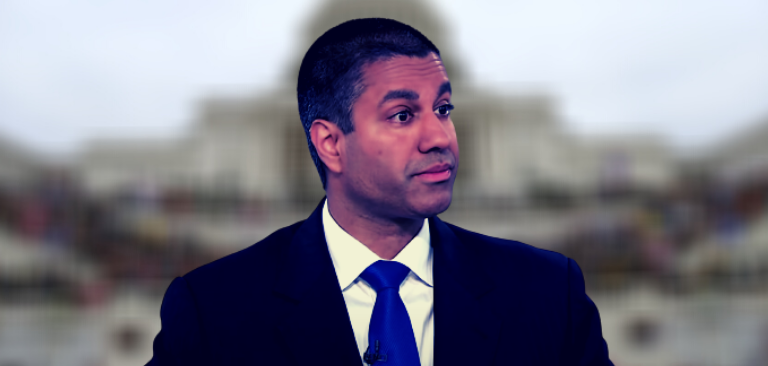Ajit Pai, the FCC chairman appointed by President Trump, has abandoned the administration’s last-minute plan to push back against Big Tech by redefining Section 230. Pai claimed there’s not enough time.
Section 230 is a law that protects online platforms from liability from user-generated content.
In response to rising online censorship, the Trump administration launched several efforts to reduce the protections of Section 230.
In an interview with the Protocol blog, outgoing FCC chairman Ajit Pai said he would not continue with the last-minute efforts to change Section 230. His reason was “there’s simply not sufficient time to complete the administrative steps necessary in order to resolve the rule-making.”
“It’s a very complicated issue, one that I think Congress will have to study and deliberate on very seriously. I personally would think about it more carefully in terms of the immunity provision, for example, but those are the kinds of things that I think the next administration and Congress will think about very carefully,” Pai explained.
In the same interview, Pai was asked if he agreed with Facebook and Twitter’s decision to censor the president. He said that “given the circumstances we saw yesterday, I’m not going to second-guess those decisions.”
Pai condemned the protests stormed the Capitol building, blaming their motives on “conspiracy theories.”
“I think it was a terrible mistake to suggest that the results of the election, and particularly the process that culminated yesterday in the Senate and the House, could in any way be changed. That was a terrible mistake and one that I do not think in any way should have been indulged.”










